Main Library Open Access
- Definition
- Open Access models
- Open Access Publishing Programs
- Plan S
- Repositories
- Creative Commons Licenses
- Additional materials
- Most important definitions
Definition
Open Access (OA) – a free, general, permanent and instant access for everyone to materials published on the Internet, including scientific and educational data and content.
The condition for open access is unrestricted access via the Internet (no fees; no need to log in or install applications; no time or location restrictions). Open Access allows resources to be freely read, copied, printed, distributed, saved, without interference with their content and with respect for copyright and the obligation of correct citation.
Open Access Models
Distribution Models:
- open access journals – the so-called “gold open access”, which means publishing scientific articles in peer-reviewed open access journals. Publication costs are borne by the author or the institution funding his/her research,
- open access repositories – the so-called "green open access”, i.e. depositing works in open access repositories.
- gratis – making a publication available on the Internet, for use under the so-called permitted private use,
- libre – making a publication available on the Internet for use under a free license (e.g. Creative Commons licenses).
Open Access Publishing Programs
Open access information for journal authors - ELSEVIER
Open access is an increasingly popular way to publish academic and scientific research. As of 2020, 9 million articles have been published open access in peer-reviewed journals, according to data from Scopus and ImpactStory
More details about the program
Open Access Publication Springer
The program operates with a new annual pool of 2176 articles and is offered for articles accepted for publication in 2021.
It enables Polish authors affiliated at Polish academic institutions to publish open access articles under CC BY license in Springer hybrid journals. Publication costs are funded by the Ministry of Science and Higher Education.
More details about the program
Open Access Publishing Program Science Advances
The cost of publishing up to 10 articles from Poland per year in the journal Science Advances is covered by a license fee. This offer is available to corresponding authors affiliated at Polish institutions covered by the Science license, who support this affiliation on the title page of the article. More details about the program: please contact with ICM at the address wbn@icm.edu.pl to take advantage of the program.
The Institutional Open Access Program (IOAP) of the Swiss publisher MDPI
MDPI ( Multidisciplinary Digital Publishing Institute) is an open access peer-reviewed journal database where you can publish articles for a fee or free of charge depending on the type of the chosen journal. Articles are reviewed by a panel of experts.
More details about the program
Plan S
Plan S is an initiative of cOAlition S, which is an international consensus of research funding agencies and foundations. Starting in 2021, all scientific publications describing the results of research funded by public or non-public grants awarded by national, regional or international funding institutions and research councils must be made available in open access journals or on open access platforms.
Publications that are not made available in the above manner must, immediately upon publication (without any embargo), be placed in repositories registered in OpenDOAR in accordance with OpenAIRE guidelines. The possibilities of archiving in the repository are defined by the publisher's policy available in Sherpa RoMEO. Plan S recommends the use of ORCiD identifiers for all participants in the publication process.
Plan S is based on 10 principles supplemented by specific guidelines for research papers.
Repositories
Repository – a platform for depositing, storing and making available online the scientific achievements of academic institutions (institutional repositories) or research results from specific fields of science (disciplinary repositories). Repositories are used to deposit publications (mainly journal articles, book chapters, monographs, doctoral theses) as well as research data.
OpenDOAR (Directory of Open Access Repositories) – a database that records the world's repositories and their policies, created by the University of Nottingham, UK. It allows you to search repositories by: discipline, document types, country, language, repository type or software used.
ROAR (Registry of Open Access Repositories) – a global registry of repositories being developed at the University of Southampton. It allows for searching by repository type, subject, country, software, year, and name.
CEON – a repository of the Centre for Open Science run by the Interdisciplinary Centre for Mathematical and Computational Modelling at the University of Warsaw. It provides open access to articles, books, conference materials, reports and doctoral theses.
Bridge of Knowledge – a multidisciplinary portal providing access to science resources created by the Gdańsk University of Technology.
arXiv.org – a repository operated by Cornell University, USA, within the scope of physics, mathematics, computer science, electrical engineering, statistics, finance and economics. Publications are also visible in academic search engines (e.g., Google Scholar).
Disciplinary Repositories – a list of open access disciplinary repositories. It includes website titles, names of maintaining institutions, information on language and access restrictions. The list is a part of the Open Access Directory.
Open Archives – a global list of repositories and digital libraries with descriptions. Created by the Open Archives initiative.
Directory of journals
DOAJ (Directory of Open Access Journals) – a global database of peer-reviewed journals created by Lund University in Sweden. Currently managed by the Infrastructure Services for Open Access. Thematic scope includes most academic disciplines. DOAJ is a search engine that implements proven publishing practices.
Journals from MDPI (Multidisciplinary Digital Publishing Institute) – a Swiss publisher of peer-reviewed journals.
Hindawi – a publisher that makes peer-reviewed journals available in open access. Journal topics include science, technology, medicine, and social sciences. All titles are indexed by Google Scholar and DOAJ.
Directory of books
DOAB (Directory of Open Access Books) – a digital catalog of peer-reviewed books. The service is run by DOAB Foundation, a Dutch non-profit organization. The catalog is open to all academic publishers; books must meet the standards and requirements set by the repository.
OpenStax – OpenStax College is a non-profit organization that is an initiative of Rice University of Houston. They prepare free e-books at the level of high schools and first years of study at higher education institutions. Each book can be viewed online or downloaded as a PDF. The first textbook in Polish available on the platform is a physics textbook.
Data register – See the tab: Open Research Data
Creative Commons Licenses
Creative Commons are legal licenses that allow you to replace the All rights reserved model with the Some rights reserved principle.
CC licenses are royalty-free and non-exclusive, valid for anyone who uses them, without time or territorial restrictions. CC licenses have common features (such as respect for moral rights) and additional conditions chosen by the licensor – i.e. the creator or holder of copyrights. The author always retains the copyright while allowing others to copy and distribute their work under certain conditions.
CC licenses are created based on four basic conditions:
 Attribution (CC BY)
Attribution (CC BY)You may copy, distribute, display, and perform the copyrighted work and derivative works based on it, provided that you give credit to the original author.
 Non-commercial use (CC BY-NC)
Non-commercial use (CC BY-NC)The condition narrows the use to non-commercial purposes only. You may copy, distribute, display and perform the copyrighted work and derivative works based on it, except for commercial use.
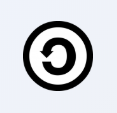 Share-alike (CC BY-SA)
Share-alike (CC BY-SA)This attribute permits distribution of derivative works only under the same license as the original work.
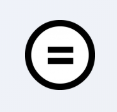 No derivative works (CC BY-ND)
No derivative works (CC BY-ND)The condition prohibits the creation of derivative works. You may copy, distribute, perform and display the work only in its original form.
Types of CC licenses
Six licenses were created that are combinations of the four conditions above:
 Attribution - CC BY .
Attribution - CC BY .You may copy, modify, distribute, display, and perform the copyrighted work and derivative works based on it, as well as publish under any license, provided that you cite the original author and specify
the source. The license gives the broadest freedom to the licensee.
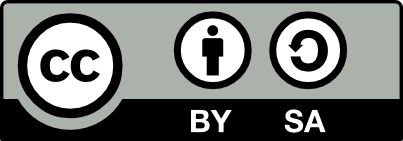 Attribution – share-alike. CC BY-SA
Attribution – share-alike. CC BY-SA You may copy, modify, distribute, display, and perform derivative works under the same license as the one based on which the original work was made available. The author of the development of such a work cannot prohibit others from exercising freedoms of which they themselves are a beneficiary.
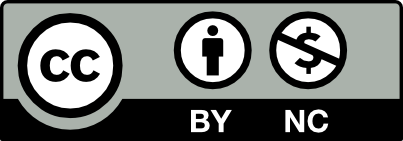 Attribution – Non-commercial use. CC BY-NC
Attribution – Non-commercial use. CC BY-NCYou may copy, modify, distribute, display, and perform the copyrighted work, as well as publish under any license, provided you give credit to the original author and specify the source, but you may not profit financially from this.
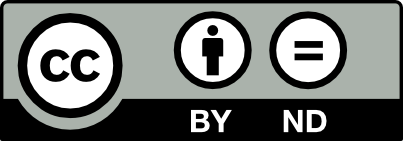 Attribution – no derivative works. CC BY-ND
Attribution – no derivative works. CC BY-NDYou may copy, distribute, display, and perform the work only in its original form, for commercial or noncommercial purposes, and you may not create derivative works.
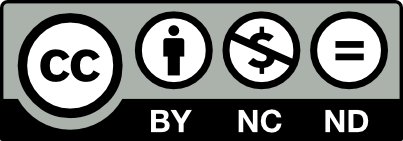 Attribution – non-commercial use – no derivative works. CC BY NC-ND
Attribution – non-commercial use – no derivative works. CC BY NC-NDYou may copy, distribute, display, and perform the work only in its original form for non-commercial purposes, and you may not create derivative works. This is the most restrictive of the licenses.
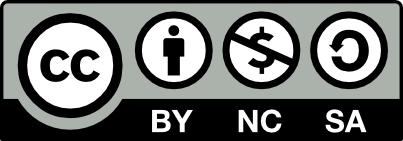 Attribution – non-commercial use – share-alike. CC BY NC-SA
Attribution – non-commercial use – share-alike. CC BY NC-SA You may copy, modify, distribute, display, and perform derivative works only under the same license as the one based on which the original work was made available, for non-commercial purposes.
CC licenses have different degrees of openness, they can be free content or open licenses. Free content licenses give users the greatest freedom in the use of the work and are consistent with the assumptions of libre open access. The free content licenses are "attribution" (CC BY) and "attribution, share-alike" (CC BY-SA). Other licenses are open licenses, because they place certain restrictions on the use of the works, such as prohibiting commercial use or modification of the work.
It is possible to transfer a work into the public domain using the CC Zero mechanism, which is not formally a license because it does not specify the terms of use of the work.
 CC0 License (Creative Commons Zero)
CC0 License (Creative Commons Zero)Means the transfer of the work into the public domain, waiver of all rights to the work under copyright law, to the maximum extent possible under the laws of the given country. In Polish law it means granting a broad license by the author, which allows any use of the work without the requirement of citing the author, and the author waives moral rights to the work.
 Public domain
Public domain A graphic indicating that there are no copyright restrictions on a designated work. With its help, anyone can identify a public domain work that is not protected by copyright. It is not a license.
Additional materials
Open Access Directory (OAD) – this website is a compendium of knowledge about the open access movement and includes an index of OA sources by, among others, alphabetical order, subject area, and publishers.
Global Open Access Portal (GOAP) – a portal that collects information on open access by country (along with a breakdown by area). It presents important OA organizations and publications; outlines major barriers to OA in each country and the potential of UNESCO member states.
Open Research Europe – a platform launched by the European Commission. It enables free, open and immediate publication of research results funded by Horizon Europe (2021-2027) and Horizon 2020 programs.
OpenAIRE (Open Access Infrastructure for Research in Europe) – an organization working for Open Science in Europe. OpenaAIRE manages a network of National Open Access Desks across the EU and beyond. It conducts education and training activities focused on researchers, promotes openness policies, and collaborates with projects, repositories and journal platforms.
Sherpa Romeo – information on journal publishers' policies regarding author's rights to post material in repositories, open access databases, and home pages.
Journal Checker Tool (JCT) – a service that allows researchers to check the compliance of scientific journals and publishing platforms with Plan S.
ROARMAP (Registry of Open Access Repository Mandates and Policies) – an international registry of academic institutions (universities, research institutions and research funding bodies) collecting information on adopted open access policies. ROARMAP is run by the University of Southampton in the United Kingdom.
Most important definitions
Hybrid journals – journals that may contain both open access articles and traditional articles available under paid subscription.
Data journal – an academic journal that publishes articles describing research datasets made available in data repositories or (rarely) as a supplement to the article itself. These publications are peer-reviewed and counted as academic achievement.
Data management plan – see data management plan.
DMP – see data management plan.
DOI (Digital Object Identifier) – a digital identifier permanently assigned to an electronic document, allowing it to be found on the Internet regardless of the URL leading to it.
Embargo – a period of time during which research data cannot be made available to the public. It is typically used to obtain related patents and/or other intellectual property rights and prepare scientific publications based on them. After the expire of the period, publishing research data becomes possible.
FAIR – an acronym for "findable", "accessible", "interoperable" and "reusable," which defines the requirements that the research data made available should meet.
Interoperability – a characteristic of data that can be combined with other data, used in many different computer systems, and analyzed using a variety of software.
License – authorization to use a work or database in a specific way. The subject of a license may be, for example, a set of research data.
Creative Commons licenses – popular license templates developed by the Creative Commons organization.
Metadata – or data about data. A set of information about a specific dataset. It contains information about the form and content of resources so that they can be searched, identified, and managed. There are general, universal (e.g., Dublin Core, Date Cite, DAta Documentation Initiative) and disciplinary metadata standards.
NCN – National Science Centre.
ORCID (Open Research and Contributor ID) – a digital identifier used to uniquely identify authors of scientific publications.
Data Management Plan (DMP) – is a formal document that describes what will happen to the data during and after the research project. It has the character of a "living document" that can and should change as changes occur in other areas of the research project.
Preprint – a version of an article before reviews and editorial work.
Postprint – a text with changes made by an editorial office according to the reviewer's comments; the reviewed and final version.
Repository – an information system for storing scientific publications or research data and making them available via the Internet.
Derivative work – a development of someone else's work. It has some creative input from the new author, but also uses elements of the original (parent) work, such as an adaptation, translation, remix, or alteration

